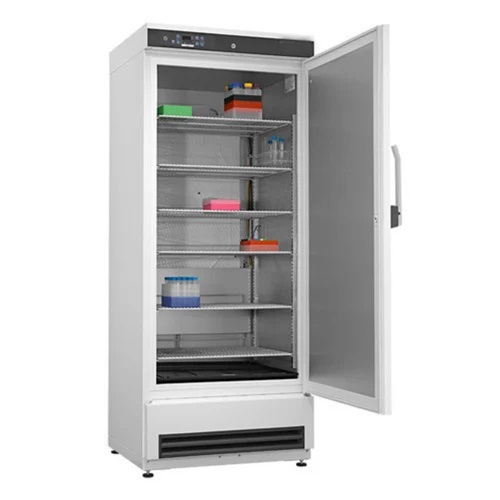
Lab Refrigerator

A laboratory refrigerator is a specially designed cooling unit used in research, clinical, and industrial laboratories for storing temperature-sensitive materials such as reagents, chemicals, biological samples, vaccines, and pharmaceutical products. Unlike domestic refrigerators, laboratory refrigerators are engineered for precise temperature control, uniform cooling, and reliable performance to ensure the integrity and safety of stored items. They typically operate in the temperature range of 2°C to 8°C and come in various sizes and configurations (undercounter, upright, or chest-type).
Properties of Laboratory Refrigerators
- Precise Temperature Control – Maintains consistent cooling within the set range, typically 2°C–8°C.
- Digital Display – Equipped with digital temperature indicators for accurate monitoring.
- Temperature Uniformity – Even air circulation ensures uniform cooling across all shelves.
- Safety Alarms – Audible and visual alarms for temperature deviations, door openings, or power failures.
- Lockable Doors – Security locks to prevent unauthorized access to sensitive samples.
- Adjustable Shelves – Flexible storage space to accommodate different sample containers.
- Energy Efficiency – Designed with insulated chambers to reduce energy consumption.
- Defrost System – Automatic or manual defrost options to prevent frost build-up.
- Data Logging – Some models include USB/remote monitoring systems for temperature records.
- Construction – Durable, corrosion-resistant materials (powder-coated steel or stainless steel).
- Environmentally Friendly Refrigerants – Many models use CFC-free and eco-friendly refrigerants.